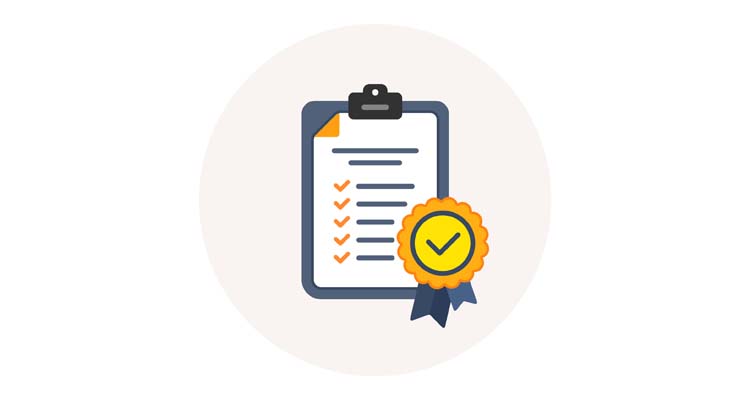Do We Need to Revisit Standards?
 One thing I truly love about writing a blog for rAVe is when I get a reaction from my peers about what I wrote. These responses always help me further think through what I originally wrote, and I always learn from others in these scenarios. In my December blog, I wrote about the supply chain issues and how this has already started to affect some higher ed institutions. A couple of my higher ed peers wrote to me and said, “Yup, we are canceling all summer installs.” One or two wrote and said, “Nope, we are going full steam ahead and hope to get things in time.” These helped me frame my thinking about what was going on in higher ed. However, the response I got from fellow #rAVeSquad member Toby Daschbach really got the wheels turning.
One thing I truly love about writing a blog for rAVe is when I get a reaction from my peers about what I wrote. These responses always help me further think through what I originally wrote, and I always learn from others in these scenarios. In my December blog, I wrote about the supply chain issues and how this has already started to affect some higher ed institutions. A couple of my higher ed peers wrote to me and said, “Yup, we are canceling all summer installs.” One or two wrote and said, “Nope, we are going full steam ahead and hope to get things in time.” These helped me frame my thinking about what was going on in higher ed. However, the response I got from fellow #rAVeSquad member Toby Daschbach really got the wheels turning.
In a LinkedIn post and verbal discussions, Toby gave an alternate view. Toby expressed that yes, certain manufacturers have long backlogs of equipment, and you may be waiting into next fall to get their equipment. But others have plenty of supply right now. Toby suggested that technology managers need to be sure we are not too stuck in our idea of standards. This opinion really got me thinking. I don’t agree with Toby completely, but I think his point should cause us in higher ed to revisit what our standards are, why they are there and when they should change.
Coincidentally, my friend Mike Pederson wrote a two-part blog on higheredav.com about — you guessed it — standards. Mike made some excellent points about why we need standards and the different types of standards that are necessary. Go check out that blog because it was written well enough that there is no need to rewrite it all here.
After reading my original blog, Toby’s response and Mike’s article, you may think we are all worlds apart in our thinking. Yet, we are closer than it seems. To see this, we need to focus on the fact that standards are a means to an end, and that end is better customer service and satisfaction. The more reliable something is and the easier it is to use, repair and train on are all factors that lead to great customer satisfaction.
We are at an inflection point in technology right now though, particularly in higher education. A recent story on rAVe [PUBS] reports on a research project by Futuresource Consulting that shows AV spending is high in higher ed and that budgets are increasing. We know that technology has made it possible for our institutions to stay running during the pandemic, so don’t we have a responsibility to continue to ensure that customer service to our students and faculty? Does putting off installs and upgrades for two years actually contribute to that? Not doing upgrades from the summer of 2021 to the summer of 2023 puts us severely behind at a time when technology (and particularly upgraded technology) is more critical than ever.
So, how do we do this? First, sit down with your own team and talk to them about the equipment standards you have without focusing on manufacturers or specific products. Talk about what the products do. Then get on a call with your local integrator. While many of us in higher ed are very skilled in many areas of AV, perhaps a weakness is in understanding the full range of products available. This is where your integrator can help. They know what you have purchased over the years, so they understand your standards and what you need in technology. They can help demo products that will meet these standards and are currently available. Now you can put together that information and see if there are areas where you can bring in a new piece of equipment that will fit your standards.
Please understand that I am not suggesting you throw away everything you have done over the years. There are some things that need to remain. A great example is touch panels. If you have standardized on a couple of models of touch panels and a specific touch panel design, it would be a horrible idea to start placing button pads in classrooms simply because that is all that is available. This would worsen customer service, not improve it. However, what about a projector? Sure, you have used ACME brand projectors for years. You know how to install, how to program and the ins and outs of them. Would going to a different brand projector cause your customer service to suffer? What about different amps, different speakers or different video switchers? I think that different colleges would have different answers to this, but it is a valid question that should be seriously addressed.
As technology managers in a higher ed institution, we have to be more than just installers, designers or salespeople. We have to be sure we are providing the most value possible to our customers. Changing some standard equipment may require re-training of some techs or getting some extra spare equipment in. We need to weigh that against the negative value of not performing upgrades during one of the most AV-centric times in higher ed.





